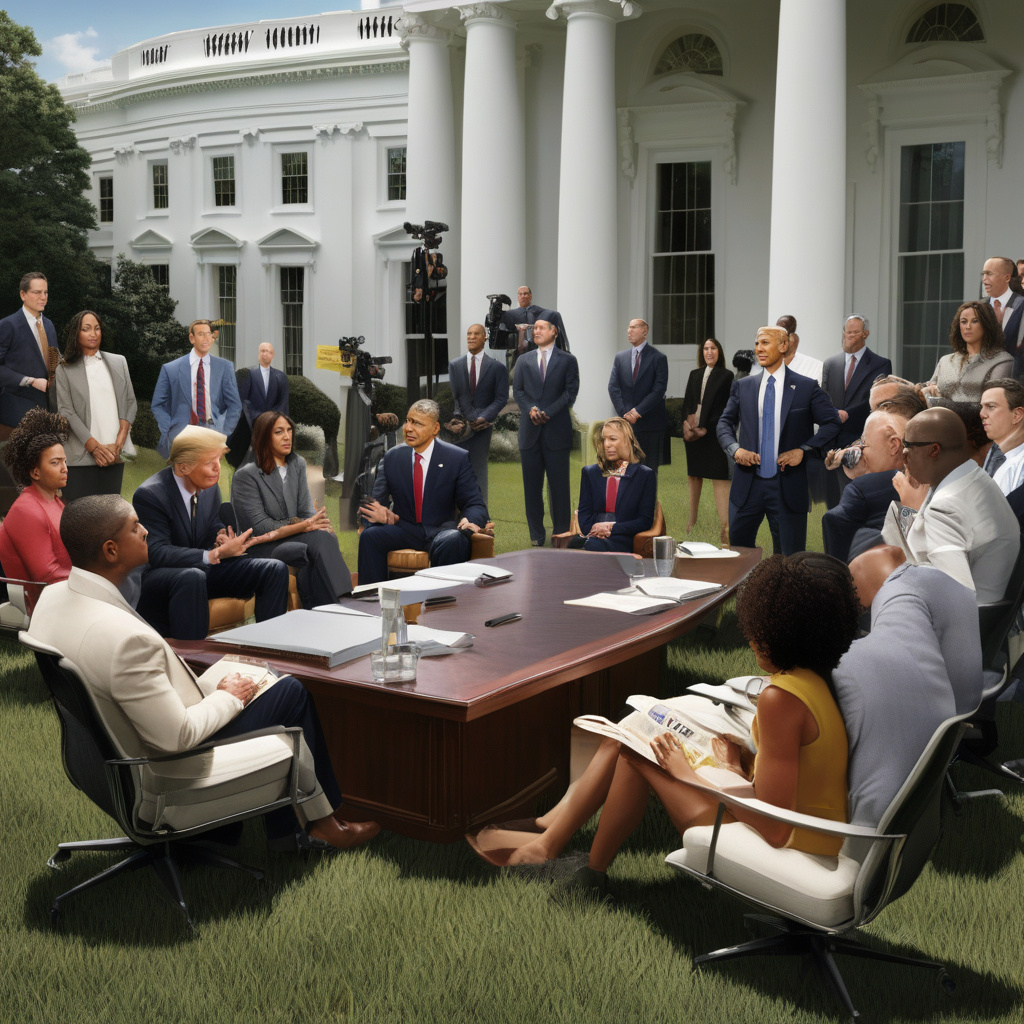White House Condemns Amazon Over Tariff Transparency: A Clash of Politics and E-Commerce
The intersection of politics and e-commerce recently took center stage as the White House publicly criticized Amazon for its proposed move to disclose the impact of U.S. tariffs on product prices. This clash sheds light on the complexities that arise when global trade policies meet consumer transparency expectations.
The controversy began to unfold following a report by Punchbowl News, which hinted at Amazon’s intention to provide customers with a breakdown of how tariffs imposed by the United States government would affect the prices they pay for products. While this move might seem like a step towards greater transparency, the White House saw it differently.
In a swift response on April 29th, the White House condemned Amazon’s alleged plan as a “hostile and political act.” The strong language used by the administration underscores the sensitive nature of trade policies and how they can become entangled with corporate strategies.
At the heart of this issue is the question of whether e-commerce giants like Amazon have a responsibility to inform consumers about the various factors that contribute to pricing, including tariffs. While tariffs are a common tool used in international trade to protect domestic industries or correct trade imbalances, they can also lead to higher prices for consumers.
For Amazon, a company known for its customer-centric approach and commitment to transparency, the decision to potentially disclose tariff impacts may have been driven by a desire to build trust with consumers. By providing this information, Amazon could empower customers to make more informed purchasing decisions and understand the broader implications of trade policies.
However, the White House’s reaction suggests that the issue goes beyond transparency and delves into the realm of politics. The administration’s characterization of Amazon’s move as political underscores the delicate balance that companies must navigate when operating in a global marketplace influenced by geopolitical dynamics.
This clash between the White House and Amazon serves as a reminder of the complexities that e-commerce companies face in an increasingly interconnected world. From supply chain disruptions to fluctuating trade policies, businesses must adapt to a landscape where economic decisions can have far-reaching consequences.
As the debate continues, it raises broader questions about the role of e-commerce platforms in shaping consumer perceptions and influencing public discourse. In an era where trust and transparency are paramount, companies must carefully consider how their actions are perceived by both consumers and policymakers.
Ultimately, the clash between the White House and Amazon over tariff transparency underscores the challenges that arise when e-commerce, politics, and consumer expectations collide. As companies navigate this complex terrain, finding the right balance between transparency, profitability, and compliance with trade regulations will be essential for building trust and credibility in the eyes of consumers and policymakers alike.
#WhiteHouse #Amazon #Tariffs #Ecommerce #Transparency
